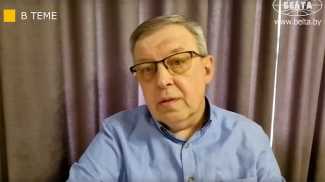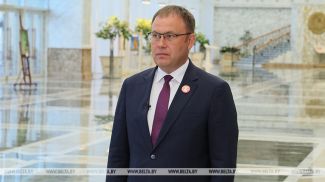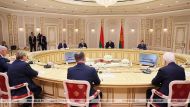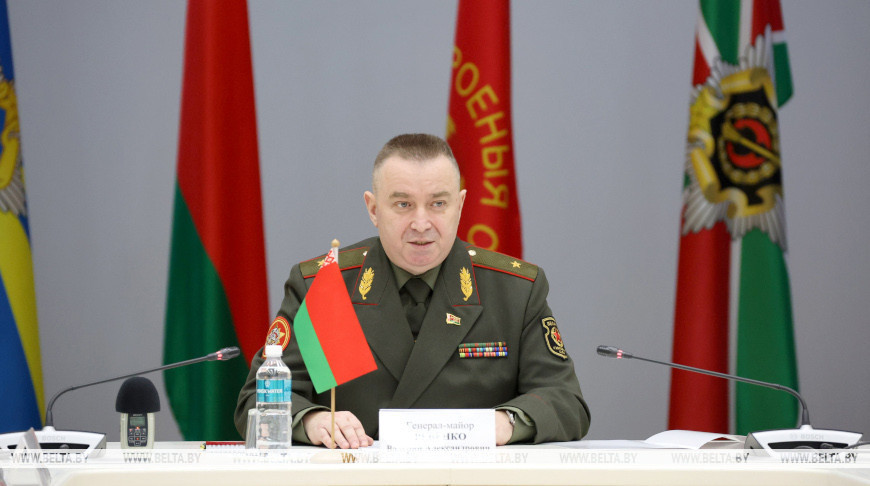
MINSK, 20 February (BelTA) - The authorities of Poland and the Baltic states are implementing openly hostile narratives, Valery Revenko, Chief of the International Military Cooperation Department, Aide for International Military Cooperation to the Belarusian Defense Minister, said at a briefing on topical issues of military policy and development of the Armed Forces of Belarus, BelTA learned.
The event brought together representatives of foreign military-diplomatic corps from 24 countries accredited at the Defense Ministry of Belarus.
“The neighboring states - Poland and the Baltics - are trying to increase the combat potential of the national armed forces as quickly as possible. The Polish military budget has already reached a record high among the European countries of the alliance - above 4% of GDP. The nearest plans are to increase it to 5%. Plans are also being implementing to increase the number of armed forces up to 300,000 military. The country continues developing three combat divisions in its eastern and north-eastern regions, i.e. directly near our border. The Polish army is supplied with shock weapons,” Valery Revenko said.
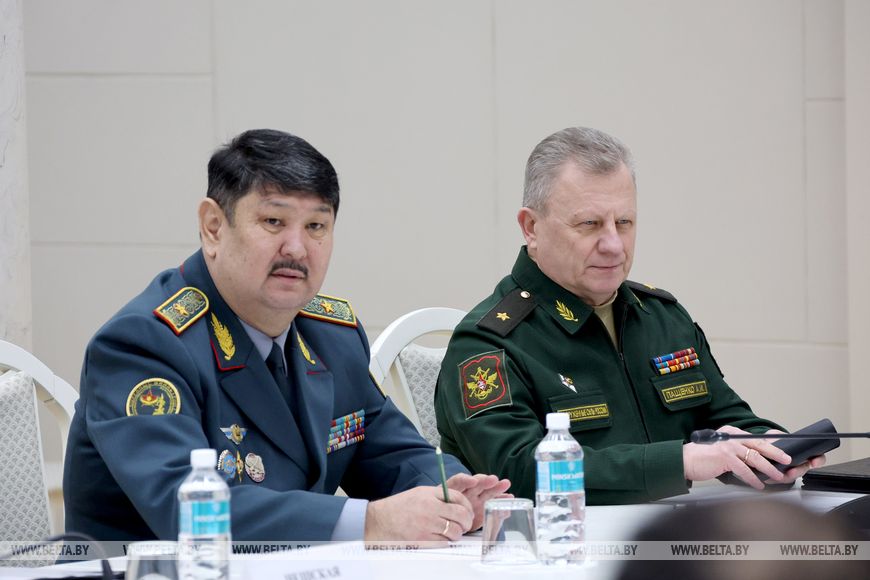
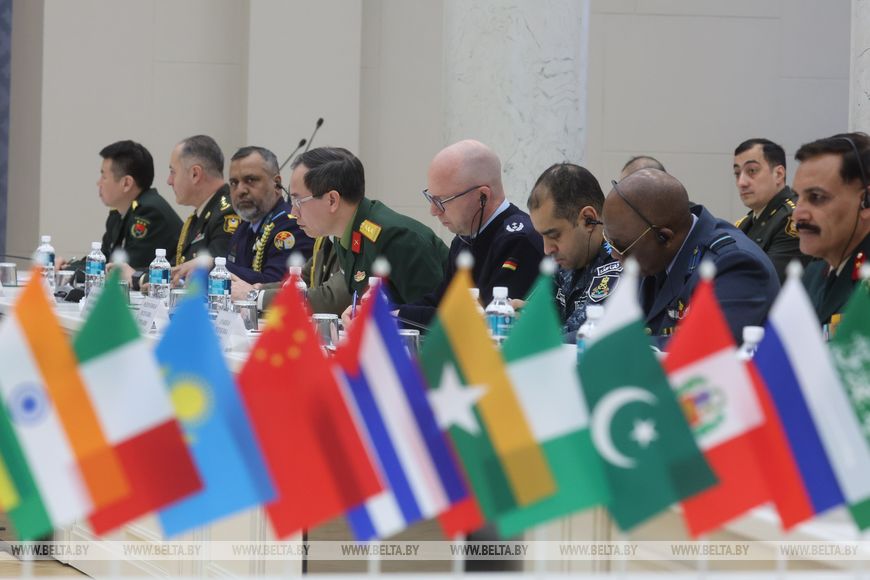
“Active preparations are underway in both Latvia and Lithuania for the deployment of brigade-level formations of the Canadian and German armed forces. We regard all the ongoing large-scale processes of militarization of the region as a potential external military danger that could, under certain conditions, lead to a military conflict,” Valery Revenko stressed.
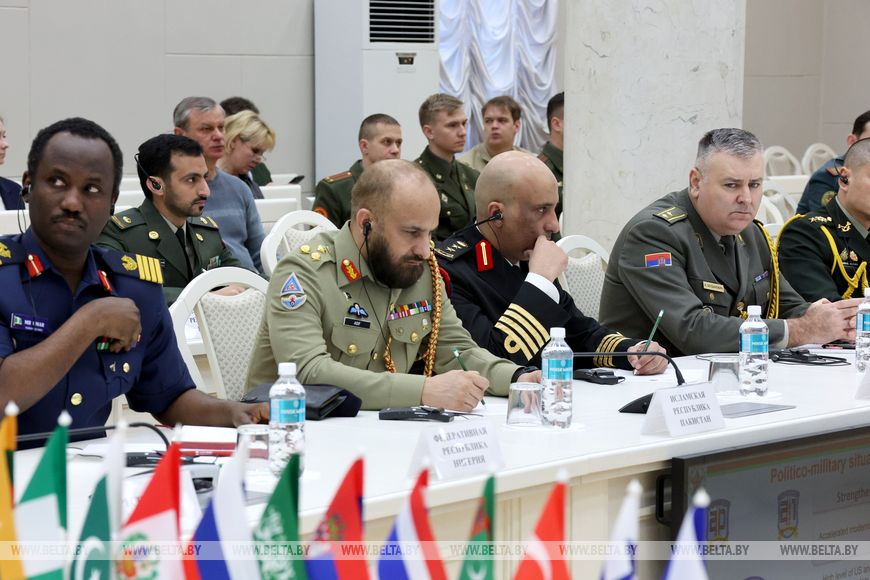
In his words, Belarus had earlier concluded bilateral agreements with Poland and the Baltic states in furtherance of the Vienna Document. "They provided for working meetings on regional security issues, additional exchange of military information and mutual inspection activities. The use of these mechanisms in the current conditions and given the lack of alternatives would contribute to the restoration of confidence and security in the region, which lies in the interests of our peoples,” Valery Revenko said.
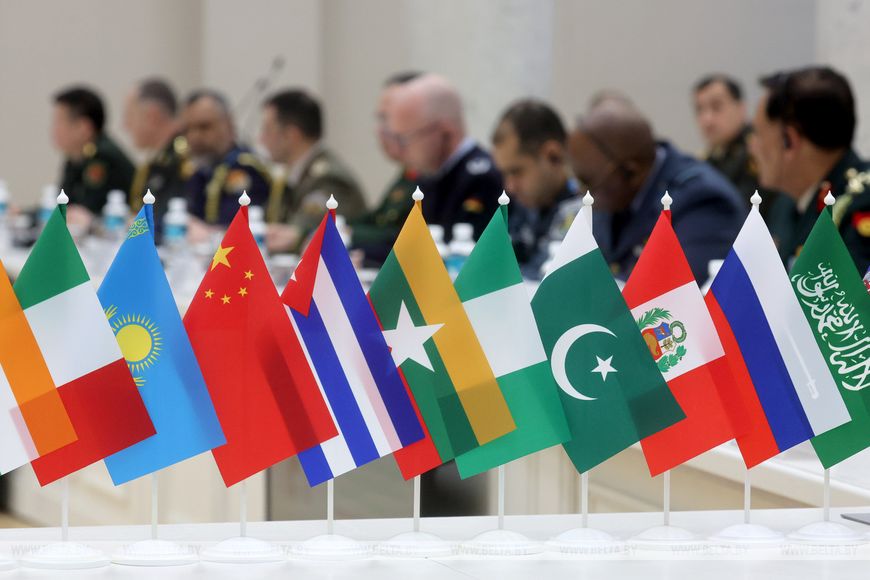
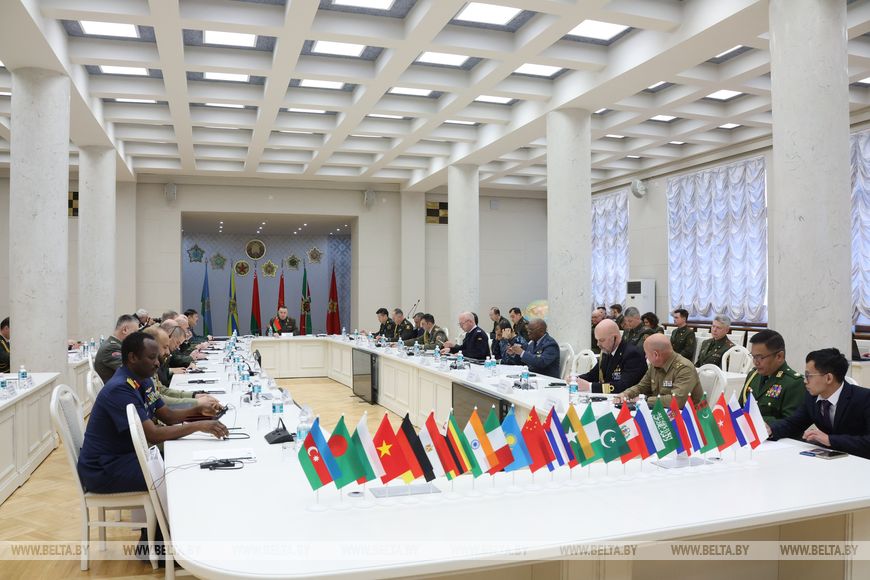
The event brought together representatives of foreign military-diplomatic corps from 24 countries accredited at the Defense Ministry of Belarus.
“The neighboring states - Poland and the Baltics - are trying to increase the combat potential of the national armed forces as quickly as possible. The Polish military budget has already reached a record high among the European countries of the alliance - above 4% of GDP. The nearest plans are to increase it to 5%. Plans are also being implementing to increase the number of armed forces up to 300,000 military. The country continues developing three combat divisions in its eastern and north-eastern regions, i.e. directly near our border. The Polish army is supplied with shock weapons,” Valery Revenko said.

According to the chief of the International Military Cooperation Department, the Baltic states have focused their main efforts on improving their military infrastructure in order to accommodate the NATO troops. The country is increasing its defense expenditures, expanding the operational strength of the national armed forces, supplying them with modern military hardware.
“Active preparations are underway in both Latvia and Lithuania for the deployment of brigade-level formations of the Canadian and German armed forces. We regard all the ongoing large-scale processes of militarization of the region as a potential external military danger that could, under certain conditions, lead to a military conflict,” Valery Revenko stressed.

In his words, Belarus had earlier concluded bilateral agreements with Poland and the Baltic states in furtherance of the Vienna Document. "They provided for working meetings on regional security issues, additional exchange of military information and mutual inspection activities. The use of these mechanisms in the current conditions and given the lack of alternatives would contribute to the restoration of confidence and security in the region, which lies in the interests of our peoples,” Valery Revenko said.
Nevertheless, the stated, the political leadership of the neighboring states persistently avoids these obvious and sensible steps, continuing to implement openly aggressive and hostile narratives in all sectors, said the chief of the International Military Cooperation Department.







